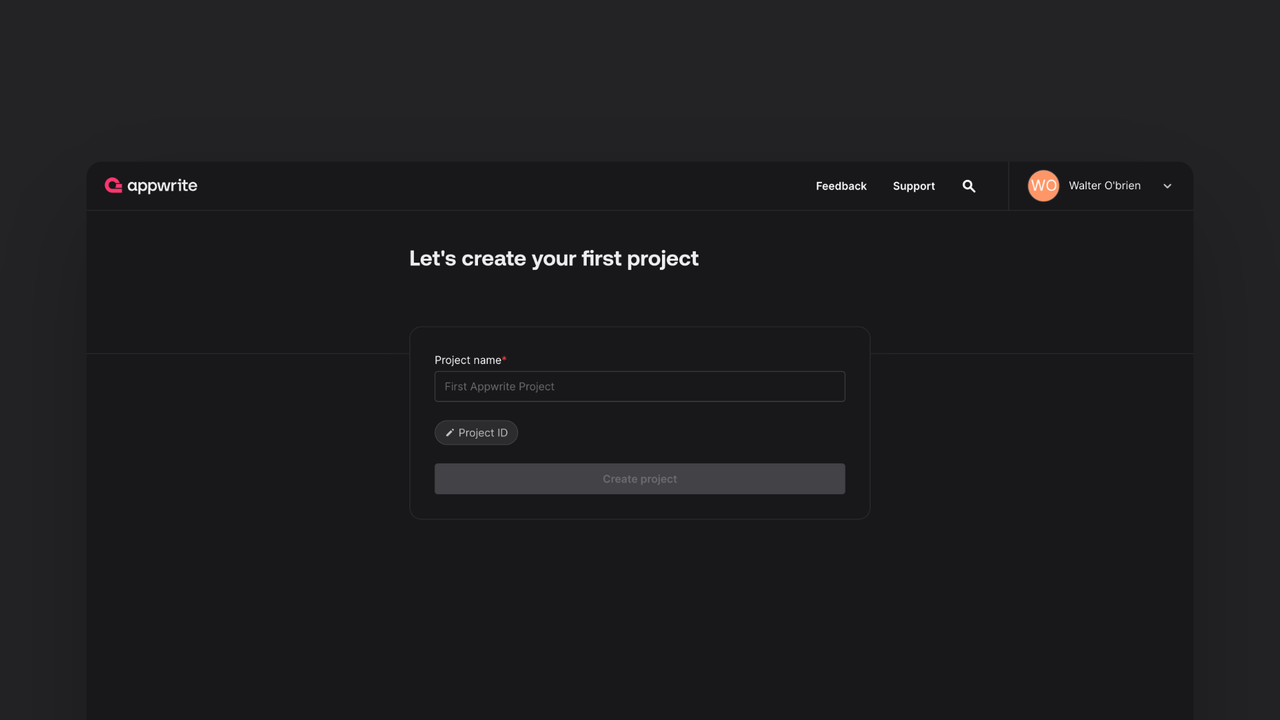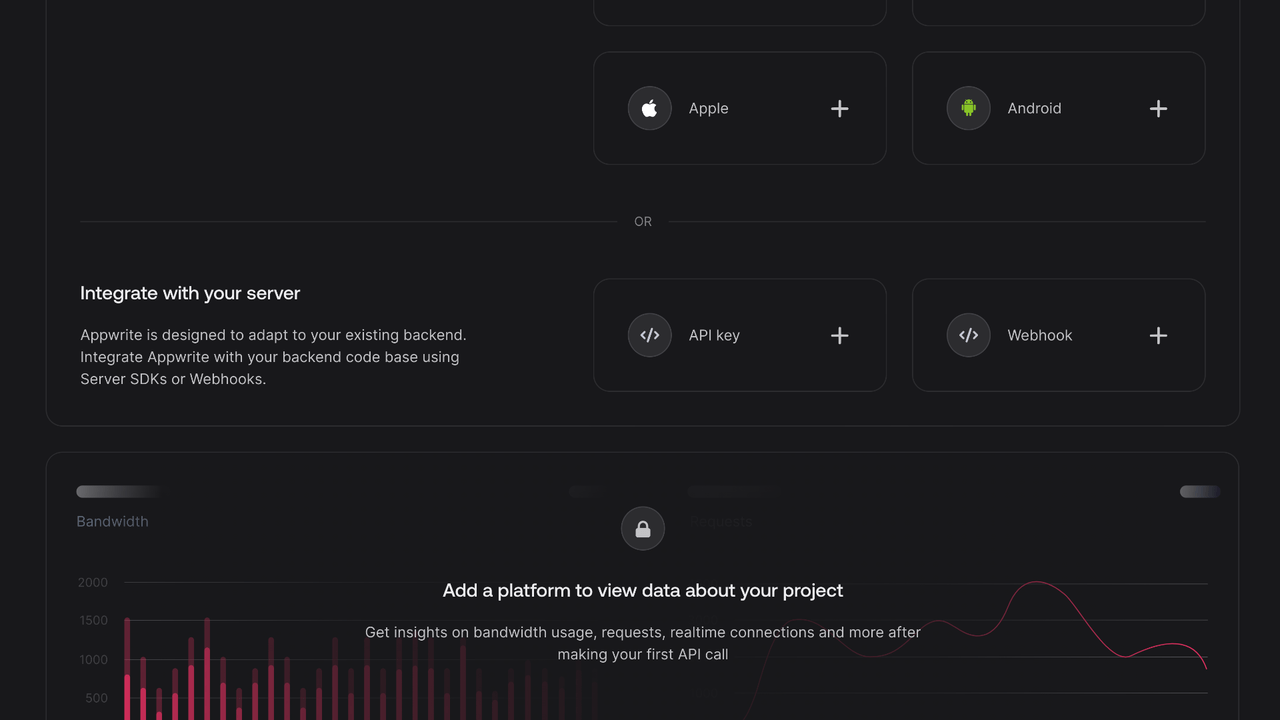Before you can use Appwrite, you need to create the Appwrite Client and set the project ID and endpoint. The client is then used to create services like Databases and Account, so they all point to the same Appwrite project.
Create a function to the build services you need in a file like server/lib/appwrite.js and exporting the instances.
As part of the function, set the current user's session if they are logged in. This is done by accessing the session cookie from the request and calling the setSession(session) with the cookie value.
Appwrite client security
We recommend creating a new Client instance for each request. When using Appwrite in server-integrations, it's important to never share a Client instance between two requests. Doing so could create security vulnerabilities.
// server/lib/appwrite.js
import { Client, Account } from "node-appwrite";
export const SESSION_COOKIE = "my-custom-session";
export function createAdminClient() {
const client = new Client()
.setEndpoint(process.env.PUBLIC_APPWRITE_ENDPOINT)
.setProject(process.env.PUBLIC_APPWRITE_PROJECT)
.setKey(process.env.APPWRITE_KEY);
return {
get account() {
return new Account(client);
},
};
}
export function createSessionClient(event) {
const config = useRuntimeConfig(event);
const client = new Client()
.setEndpoint(config.public.appwriteEndpoint)
.setProject(config.public.appwriteProjectId);
const session = getCookie(event, SESSION_COOKIE);
if (session) {
client.setSession(session);
}
return {
get account() {
return new Account(client);
},
};
}
config.appwriteApiKey, config.public.appwriteEndpoint and config.public.appwriteProjectId are Nuxt runtime configuration variables. Create a nuxt.config.js file in the root of your project and add the following code to set the runtime configuration.
export default defineNuxtConfig({
runtimeConfig: {
appwriteKey: process.env.APPWRITE_KEY,
public: {
appwriteEndpoint: process.env.PUBLIC_APPWRITE_ENDPOINT,
appwriteProjectId: process.env.PUBLIC_APPWRITE_PROJECT,
},
},
});
Now you can use .env files to set the environment variables for your project. Retrieve the values for these variables from the Appwrite console.
The PUBLIC_APPWRITE_ENDPOINT is the endpoint of your Appwrite project, and the PUBLIC_APPWRITE_PROJECT is the ID of the project you want to use. You can get the values for these variables from the Appwrite console.


The APPWRITE_KEY is an Appwrite API key with the necessary permissions to create new sessions.
For this tutorial you'll need an API key with the following scopes:
| Category | Required scopes | Purpose |
Sessions | sessions.write | Allows API key to create, update, and delete sessions. |


For example, your .env might look something similar to this.
APPWRITE_KEY=<YOUR_API_KEY>
PUBLIC_APPWRITE_ENDPOINT=https://<REGION>.cloud.appwrite.io/v1
PUBLIC_APPWRITE_PROJECT=<PROJECT_ID>